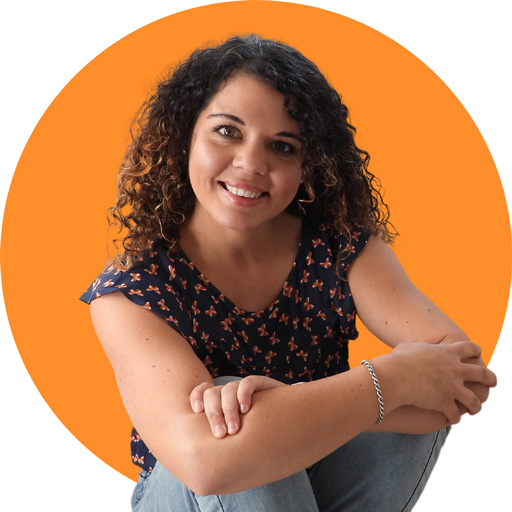Should I start homeschooling my child next year or this year? Deciding when to start homeschooling is a difficult question for many of us parents. This is because that while you can’t hold some kids back from learning, others resist all your efforts.

I hope you enjoy reading this blog post. If you want to do my course on how to homeschool, click here.
The latter cases make home education a frustrating journey and make you feel like giving up. But, perhaps you’re trying to start them learning too early. Perhaps you should consider starting homeschooling next year, instead of this year.
That is because pushing kids to learn (especially to read) too much, too early is counterproductive. It can cause frustration, misdiagnosed disorders, and unnecessary money and time spent teaching children the skills they don’t have the capacity to understand yet.
But, how early is too early? And when can you start?
In this article, I’ll help you decide what time is the best time to start home educating. 
START HOMESCHOOLING THIS YEAR IF:
There are a number of factors that tell you it’s a good time to start homeschooling. But, please keep in mind that the below points are very generalized.
The article isn’t meant to be a diagnosis of homeschool readiness. Instead, they’re supposed to point you in the right direction, so you can discern whether your children might be ready for work.
But, let’s go through these points below.
1. Maturity
Can your child sit still and focus on their lesson for 15-20 minutes? They’ll need to be able to do this if you’re going to start formal education with them.
Kindergarten programs usually have short lessons, but, even the shortest of these will be 15-20 minutes long.
2. Your Child Has Already Started Learning
This is a great sign. Like Potty Training, it’s all about watching for signs of readiness.
A good example is 4-year-old Anna. Anna started hiding in her cubbyhouse for long periods of time. Her parents weren’t sure why. Eventually, they realized she was rearranging the letters on the magnetic board in the cubby house.
What was she doing? She was teaching herself how to read!
But, not all parents have children like this.
In fact, some parents try to start teaching their children at 4-years-old. However, the children are not ready, so the lessons these children get embitter them towards learning. The child starts to dread ‘homework time’.
Most states allow parents to start home educating when they’re 6-years-old, meaning you have plenty of time to wait for your children to develop a love of lessons.
3. Your Child is Able to Follow a 2-3 Step Instructions
It’s helpful when your child can understand instructions with 2-3 step. This is because learning in itself is instruction and children should be taught to remember what they hear the first time, and then do the work.
(Many schoolteachers repeat what they say multiple times. As they do this, they teach the children 1) they don’t need to pay attention because the teacher will just say it again until they do 2) to develop a habit of inattention by not insisting they pay attention the first time.)
4. Your Children Love You Reading Books to Them
This is a minor point. That is, it’s a great advantage if your children love books when you start learning. But, this doesn’t mean they’re necessarily ready to learn to read.
However, if your children love books, a great way to get them ready for homeschooling is to start reading them plenty of books. If you don’t have oodles of time, put on audiobooks.
A child who loves books will be much more motivated to learn their letters, than a child who isn’t interested in reading.
5. You’re They’re Happy to do Self-Paced Work
You can start homeschooling earlier if your children are doing self-paced work.
This means you won’t be burning them out by doing too much, too soon, but you will be slowly introducing work to them that will hopefully get them interested. If they’re not, try again later when they exhibit interest.
START HOMESCHOOLING NEXT YEAR IF:
When you’re keen to start homeschooling your child, it can be a little bit sad when you realize they’re not ready! But, sometimes it’s the best thing for your kids.
There are a number of factors that might indicate now is not the best time to start formal learning. Let’s go through them below.
1. Your Child Just Doesn’t Get It
Little brains develop at different rates. Some develop faster, and others take more time. If your child does not yet get the concept of letters, you have two options.
- Spend 5x more time with your little one, teaching them what you could teach them more quickly later.
- Wait until you start noticing they are ‘getting it’.
It feels quite difficult to wait, and sometimes, you feel frightened because you don’t know if they ever will ‘get it’. But, have faith that you know your children well and I think most moms know when their little one is ‘getting it’.
Indeed, I’ve recently been teaching my Luke the letters of the alphabet. I started him learning BJU alphabet flashcards a year ago, but he just wasn’t ready. He was focused entirely on the animals that helped to exhibit the letter and didn’t care for the letter at all.
We dug out the flashcards again recently, and now he’s connecting the dots. He realizes the flashcards aren’t about the pretty pictures, but about the letters on the cards!
2. Your Child is Restless and Doesn’t Want to Sit and Learn
When children are very young, they find it difficult to keep focused on lessons. Up to a certain point, you can train them to focus on the thing you want to teach. But, when they are very young, this can be difficult to do without taking all the fun out of a lesson and embittering them towards learning.
The Expert Recommendation: Should I Start Homeschooling at age 4, 5, 6, or even 7?
Later is better. And much later is much better.
Some experts (and I agree with this strongly), say the best time to start formal schooling is at age 7.
But, once again, if you have a child who has already started learning letters by herself, by all means, go ahead and train the child!
What Happens When You Start Homeschooling Too Early?
Some of the most miserable homeschools I’ve seen have been homes where an anxious mother sits her child down to complete the mandatory homework for that day, regardless of bored looks, wandering eyes, and tears from the child.
These homes are places where children grow up resenting their homeschool experience.
As a homeschool parent, this isn’t what you’re going for!
You should be aiming for fun! Not only should your child be enjoying the learning experience, but you should also be enjoying it too! Homeschooling ought to be a delightful experience.
When you hear your child repeating scripture by heart or talking through interesting ethical dilemmas he’s come across in his study, your heart should skip a beat with joy!
A Teacher Relates Her Experience
I recently asked a kindergarten teacher what age she recommended children start school. As I finished asking the question, I could tell I’d hit a nerve. Immediately, this teacher started shaking her head and saying how unfortunate it was to get children who had been taught their letters too early.
She had discovered that children who had been taught their letters before they got to kindergarten were often burned out and not as keen to learn like other children, who started their learning later.
Parents might be itching to teach children, but, she said, if it wasn’t done well at an early age, burnout was often the result.
TIP: What Should Lessons Look Like in the Early Days?
When you homeschool, you want lessons to be:
- short and
- sweet.
Short in the sense that you don’t want to go past the point where your child feels frustrated.
Sweet in the sense that you want lessons to be fun and inspiring. (A home educator should be aiming to produce lifelong learners and children who self-direct their own study to a large extent.)
Once a child starts yawning and you have to bring them back to their lessons all the time, it’s time to pack up the books!
This is because, the child isn’t having fun, and they’re not taking the work in any way. If you want to keep going with the lesson, take a break and come back to it.
When children do their lessons, try to develop a HABIT OF ATTENTION, so children learn to pay attention when they’re doing lessons.
Don’t Worry – They’ll Catch Up!
But, if you don’t start homeschooling this year, will your children ever catch up to the children who started before your child?
Yes, yes, and yes!
It’s amazing what our brains can do. Catching up a year or two is a small thing for young brains that are highly plastic.
And the more your child is interested in their studies, the faster they’ll learn. If you have a kid who isn’t interested in the material you’re teaching, you’ll find they take in half of what an interested student will take in.
You see this when you hear of teenagers who have somehow reached their high school years, but they don’t know how to read!
So, don’t worry, there’s plenty of time to catch up. In the meantime, focus on creating an environment that loves interest-based learning and an environment that is fun to learn in!
Conclusion: Should I Start Homeschooling My Child Next Year or This Year?
Are you ready? Are they ready? Is homeschooling not going to feel like pulling teeth? Then you’re ready to go! Remember to keep it short and fun. If you’re not feeling it, and (especially) if they’re not feeling it, reconsider and wait a bit. All the best with your homeschool journey!



